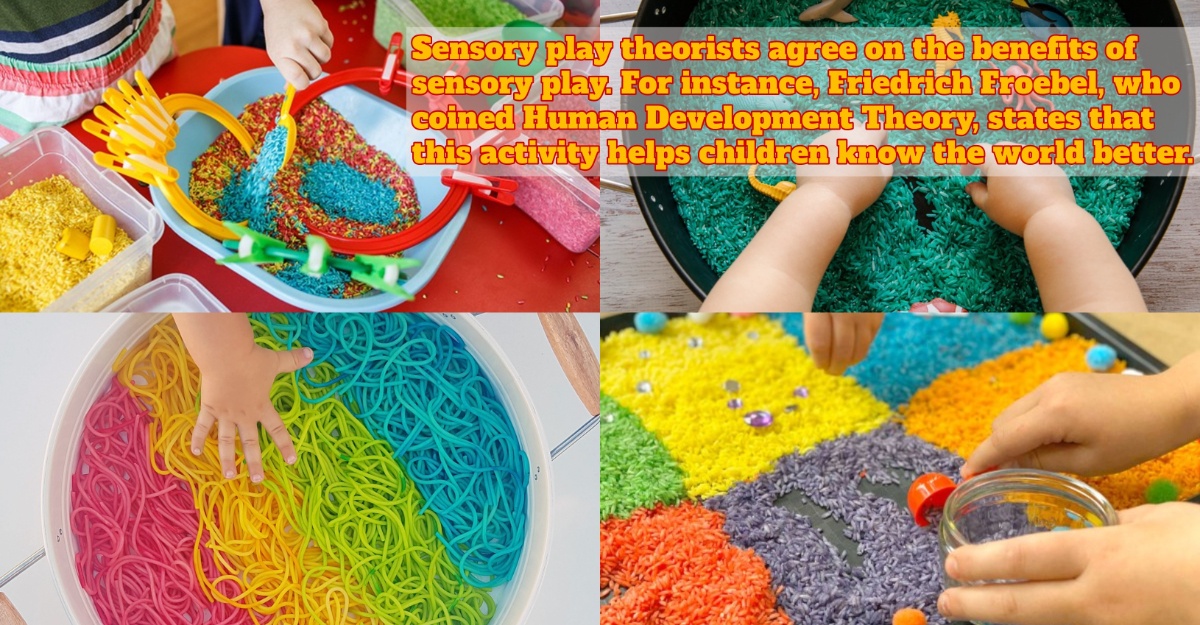Sensory play is all about hands-on activities. Parents can introduce it to their children to stimulate all of their senses.
There are five basic senses of humans. They include smell, sight, sound, touch, and taste. In addition, body awareness and balance are also included in the human senses.
Sensory play theorists agree on the benefits of sensory play. For instance, Friedrich Froebel, who coined Human Development Theory,states that this activity helps children know the world better. Moreover, Jean Piaget, who coined the Cognitive Development Theory,agrees that sensory play helps children to control their motor abilities.

What else can sensory play benefits children?
According toEmpowered Parents, these are the ten benefits of sensory play:
1. Brain development
The nerve connections in the pathways of the brain will become stronger. It strengthens memory skills and creates a solid foundation relating to learning new languages and problem-solving.
2. Cognition
Children’s thought processes expand through observing and trying new experiences. They see the connections coming to life through the things they experience with their senses.
3. Awareness
Moreover, children will be more aware of their surroundings. This increases their alertness to everything new. In addition, they will also become aware of their strength and capabilities.
4. Adaptability
Additionally, children gain confidence in new things and get adapted to them. As they receive positive feedback, children are more confident to dive into new obstacles.
5. Comfort
Other than that, hands-on activities can comfort children. It sets aside negative emotions like worry or anger.
6. Language development
Besides that, children can verbally communicate their ideas through the oral language skills formed. They can express their ideas and opinions about the activities they are doing.
7. Motor skills
Children can explore things through holding, pinching, pressing, and more. Also, these actions help children build their motor skills, especially their hands and fingers.
8. Creativity
Other than that, the process of creativity is more important for the development of the children’s senses. They are given the liberty to explore the world using their imagination. Hence, their self-esteem grows with their creativity.
9. Problem-saving
Besides that, the spectrum of assorted learning materials and fun activities gives children the chance to predict, solve problems, make decisions and compare the results of their initial prediction.
10. Social and Emotional Development
When doing activities with their peers, sensory play assists children to learn the meaning of acceptance. Thus, they will understand the situation better.
Also, this activity is essential for children’s development. Not only does it promotes creativity and other soft skills, but it also shapes their empathy and better judgment from the perspective of other children.
Source: Empowered Parents








